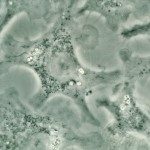Link to Pubmed [PMID] – 20001600
J. Infect. Dis. 2010 Jan;201(2):223-32
Vertebrates vary in resistance and resilience to infectious diseases, and the mechanisms that regulate the trade-off between these often opposing protective processes are not well understood. Variability in the sensitivity of species to the induction of damaging inflammation in response to equivalent pathogen loads (resilience) complicates the use of animal models that reflect human disease. We found that induction of proinflammatory cytokines from macrophages in response to inflammatory stimuli in vitro is regulated by proteins in the sera of species in inverse proportion to their in vivo resilience to lethal doses of bacterial lipopolysaccharide over a range of 10,000-fold. This finding suggests that proteins in serum rather than intrinsic cellular differences may play a role in regulating variations in resilience to microbe-associated molecular patterns between species. The involvement of circulating proteins as key molecules raises hope that the process might be manipulated to create better animal models and potentially new drug targets.

